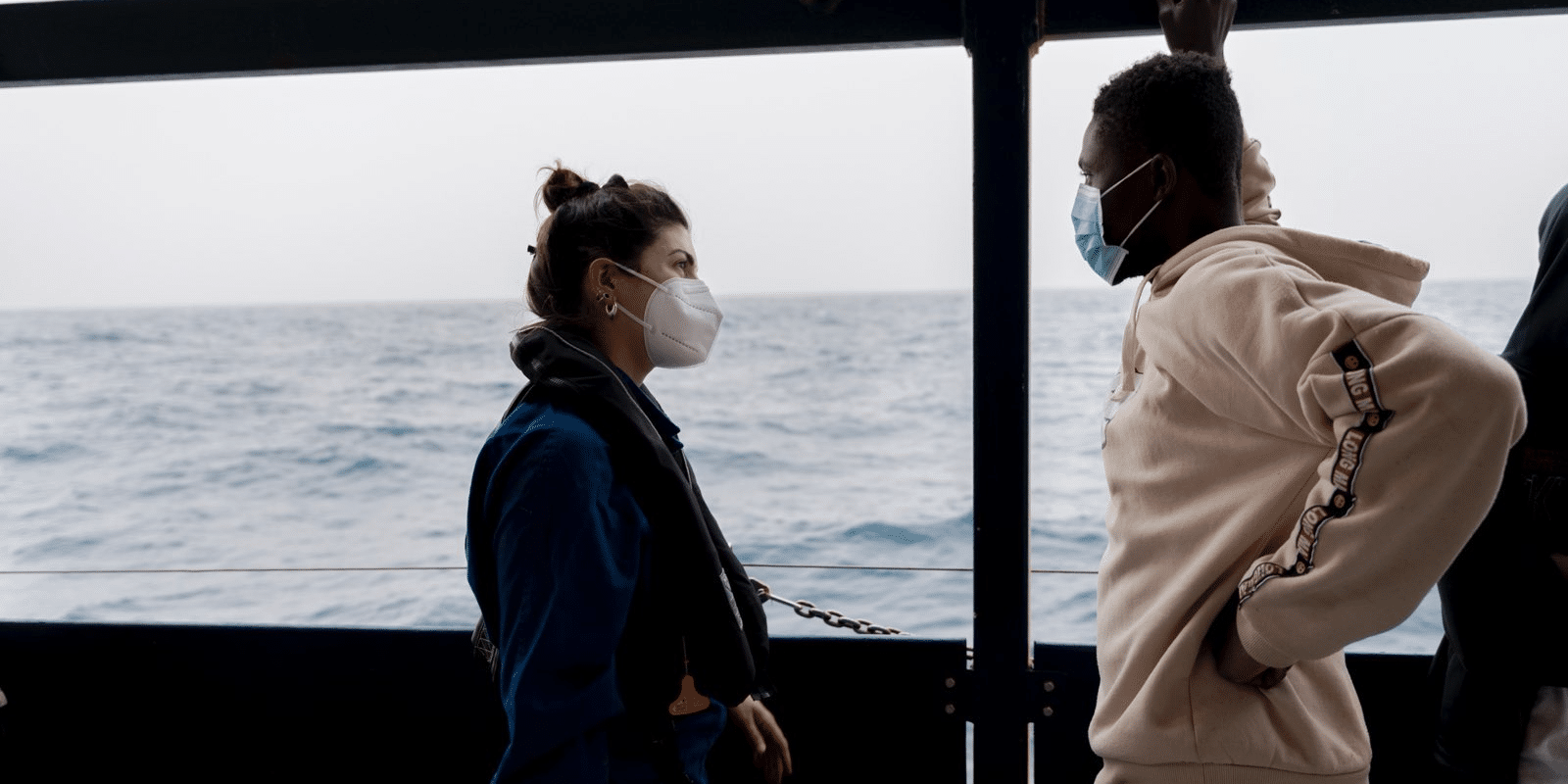Rachele is a legal specialist and part of Sea-Watch’s Italian team. For 20 months, she has been observing how the migration policy situation has worsened since Giorgia Meloni took office. Although the “sea blockade” Meloni announced during her election campaign has not been possible thanks to current international law, there is still great cause for concern. Meloni will stop at nothing to prevent people on the run from reaching the Italian mainland.
In February last year, Tunisian President Kais Saied spread conspiracy theories against black people and people on the move. In doing so he fuelled a brutal hunt across the country. Among other things, 1,200 refugees were deported by Tunisian authorities into deserts in Algeria and Libya, where many of them died. Yet despite these violent events, the EU entered into negotiations with the Tunisian president in July 2023, signing a memorandum of understanding with the aim of forcibly stopping migration across the Mediterranean from Tunisia. And as if this wasn’t cynical enough, Meloni describes Tunisia as a safe haven for refugees. In doing so, she seeks to legitimize pullbacks to a country where refugees are not protected but persecuted. This approach shows in the bitterest way that there is no longer any fear of violence when it comes to EU border controls.
Meloni is also exacerbating the situation at sea: due to the Piantedosi Decree, which has been in force since January 2023, our organization is subject to further regulations that hinder rescue operations and further endanger people in distress at sea. Oftentimes we are ordered to head straight to an Italian port after every rescue – even if we know of other emergencies at sea. We have more rescue capacity – there is plenty of space on board our Sea-Watch 5, we have fuel to be in the search area for longer and we possess the equipment to rescue more people from distress at sea. The application of the Piantedosi Decree is a clear violation of the duty to rescue when we know of other boats in distress at sea.
This regulation is further exacerbated by the allocation of distant ports. As we must travel thousands of additional kilometers to reach some assigned ports, the presence of rescue vessels in the Mediterranean is drastically reduced. When we ask for reasons for this practice, we are fobbed off with flimsy answers: a “state secret”, mysterious NATO operations, “public interests in the context of safeguarding national and international relations” or “to protect southern regions”. Yet there are now several known cases of people being bussed back to southern Italy after arriving in northern ports!
There are also unprecedented restrictions of the laws on land. With the so-called Cutro Decree of 2023, the Italian government severely constrained the rights of people seeking protection. The decree provides for faster deportations and less international protection, but more detentions in prison-like camps in and outside Italy. There is also the aftertaste that this law bears the name of the place off the coast of which a devastating shipwreck occurred during February of 2023. A tragedy again caused by isolationist Italian and European policies.
We have no choice but to use all our legal and political expertise to take action against these inhumane practices. There will be new laws and decrees that will restrict our work and further endanger people on the run. We must find ways to challenge them and find new solutions that will allow our presence in the Mediterranean to continue!











